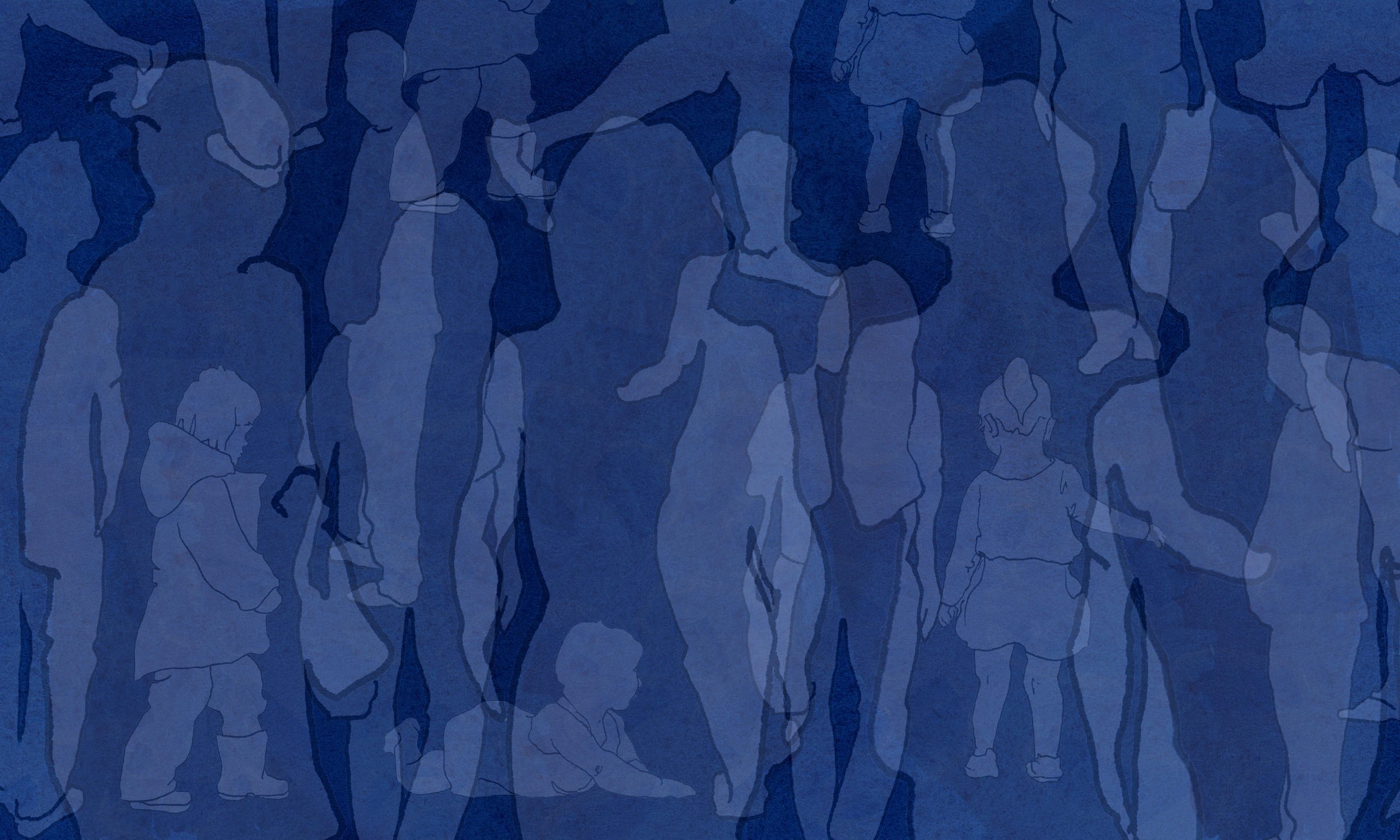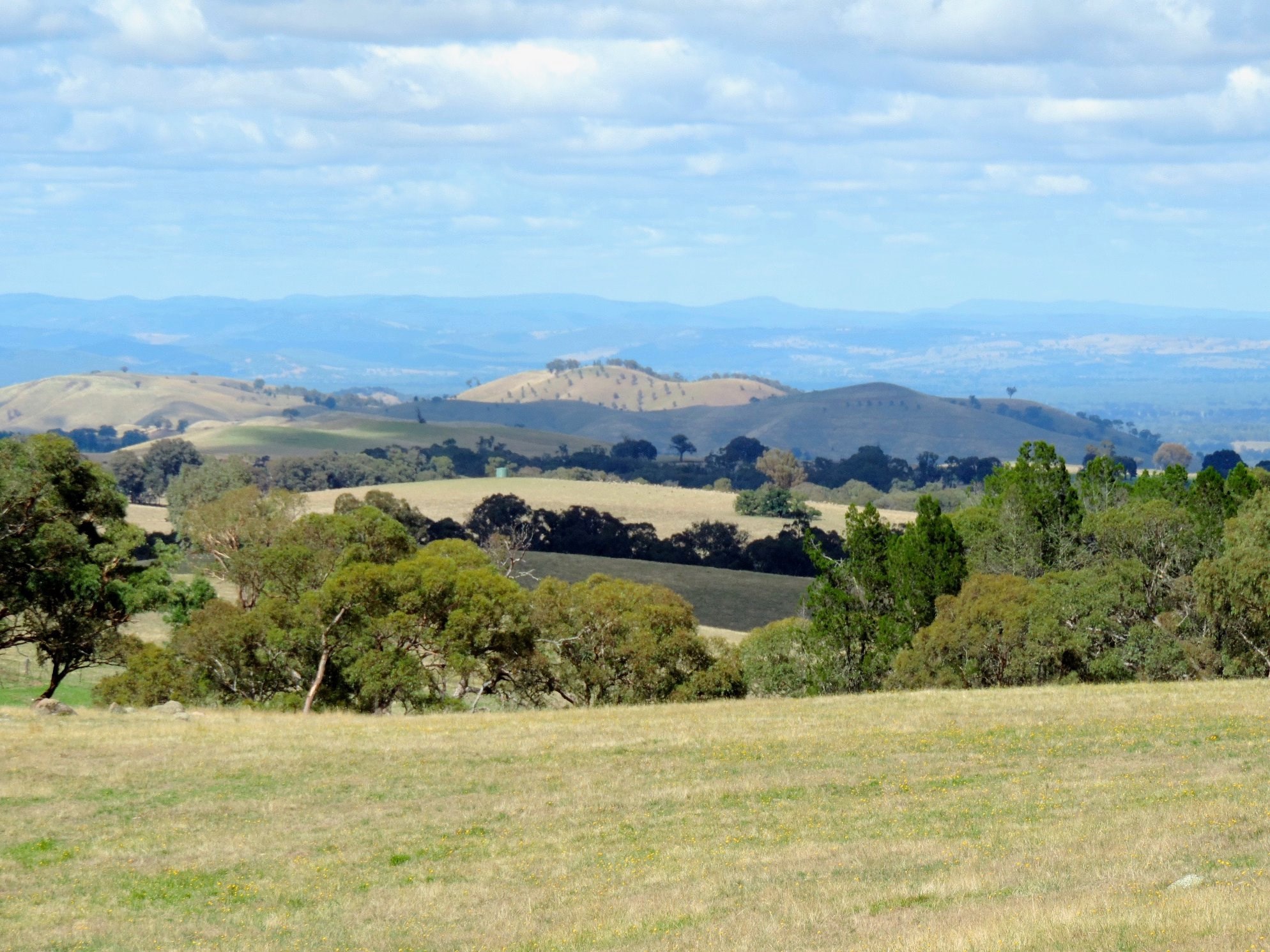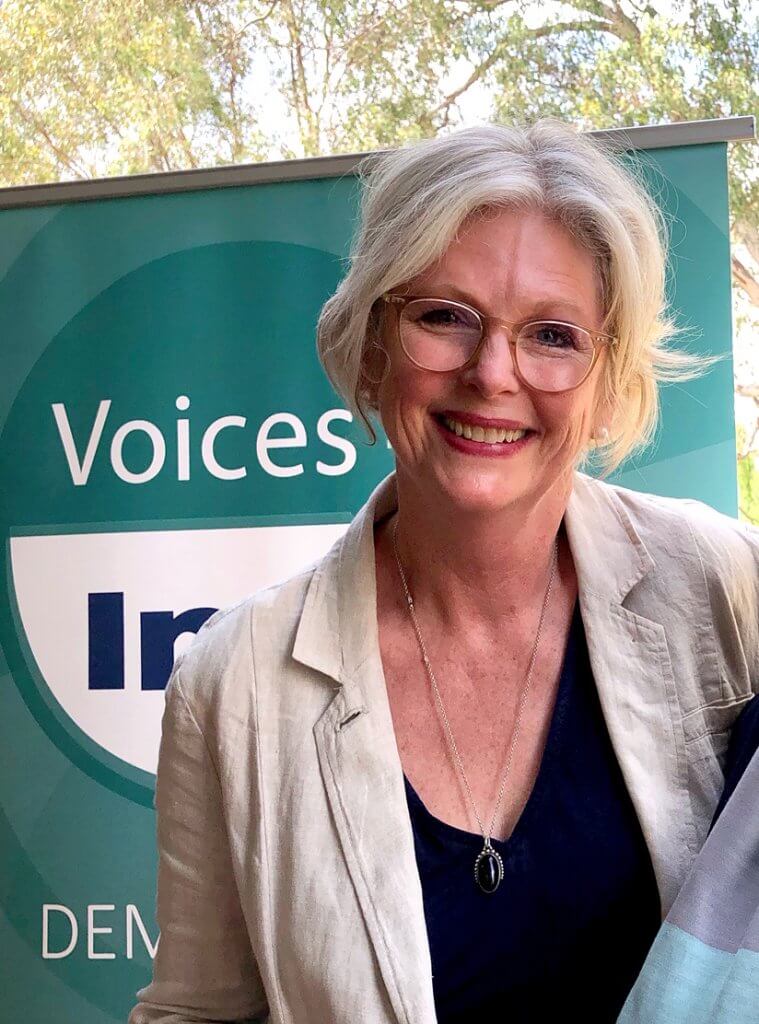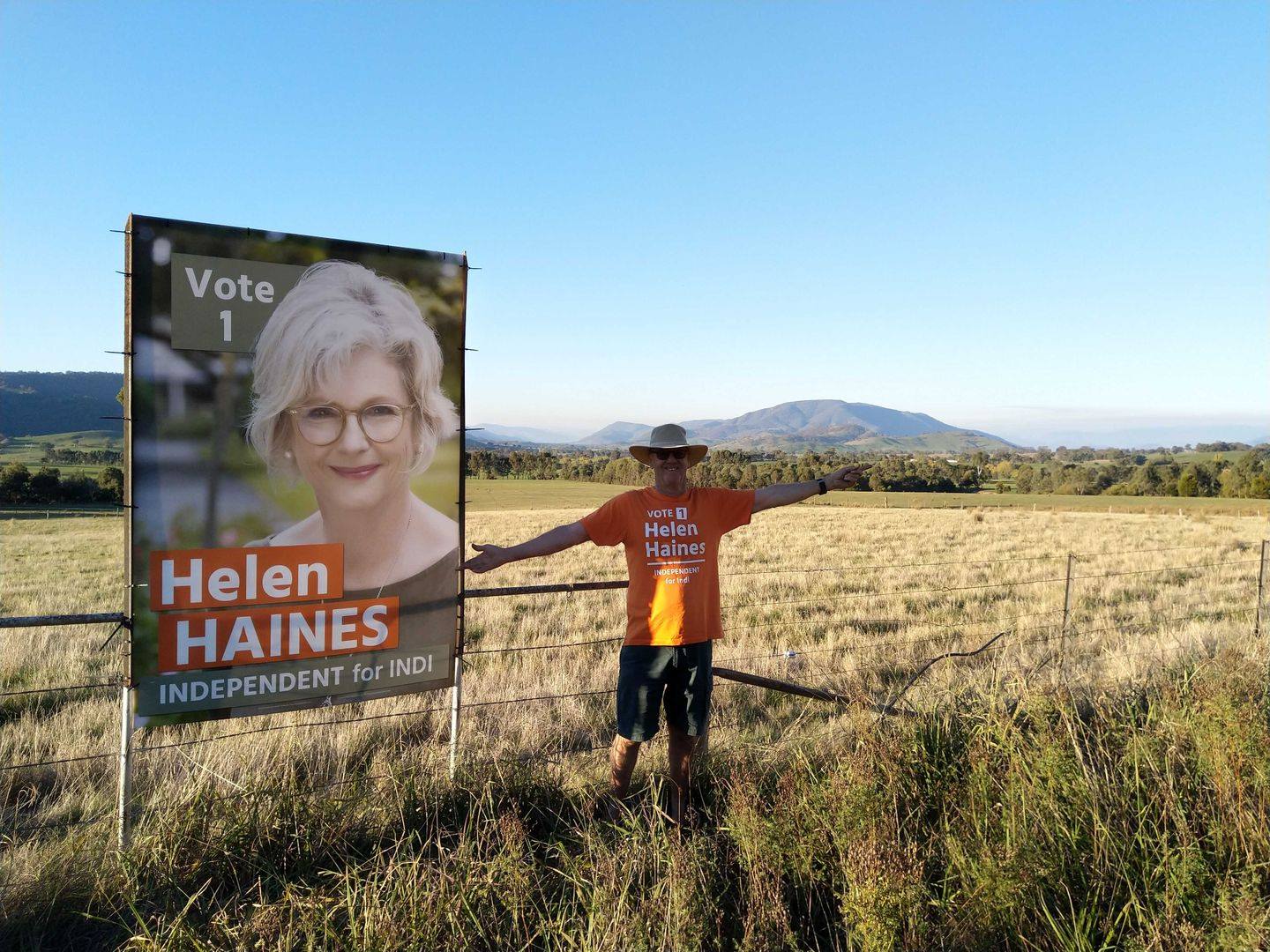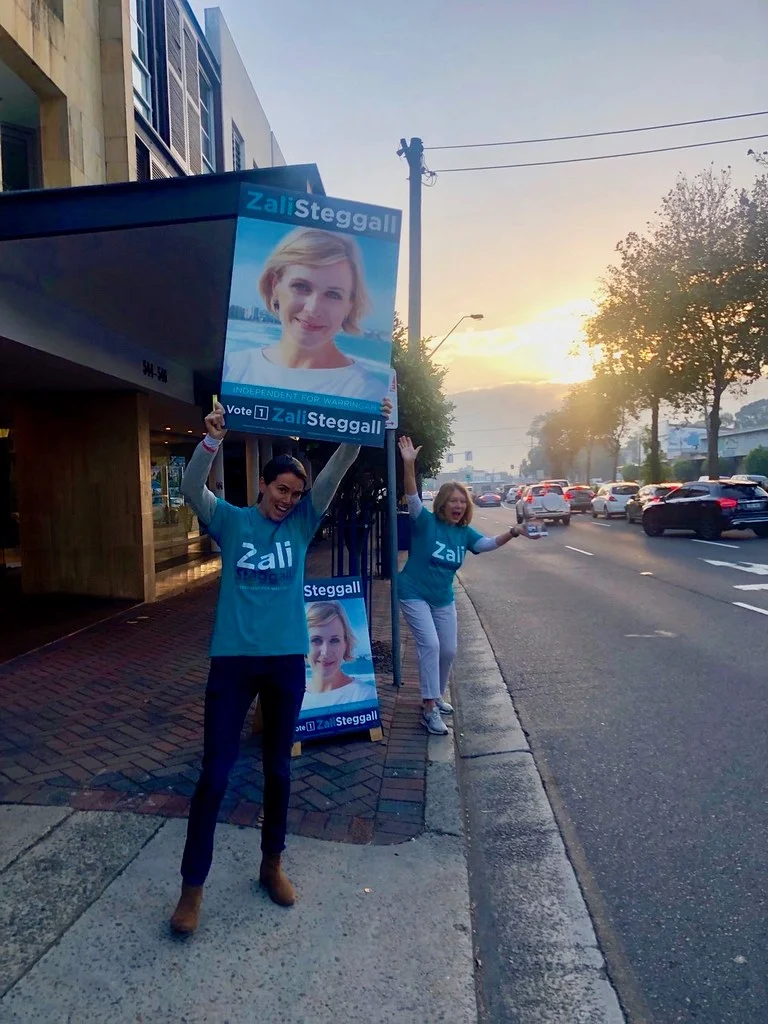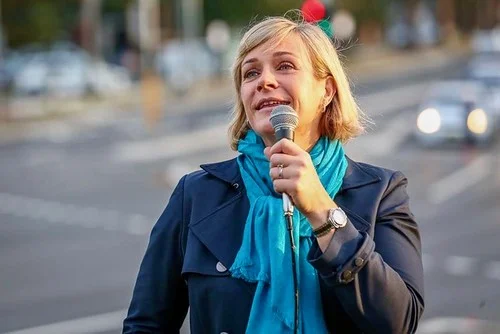Uncommon victories: lessons from Warringah and Indi
Lighthouse campaigns: guiding the way for us all.
How the lighthouse campaigns of 2019 are changing politics, and what they can teach us all
“At the Al Gore Asia Pacific training I attended they talked about ‘lighthouse projects’. It’s something new that then acts as a lighthouse for everyone else. There is something that is now possible that wasn’t possible before.” - Jane*, from Zali Steggall’s campaign
Ahh, Indi in country Victoria
One is home to beautiful farming land, mountains, valleys, historic little villages and is part the mighty Murray-Darling Basin. The other is home to stunning beaches, trendy cafes, harbour views, top end shopping and hidden coastal walks.
One is full of people who make their living in small business services, healthcare, farming and the dwindling manufacturing industry. The other is full of bankers and lawyers, finance experts, media personalities and company directors.
With all their differences, both campaigns succeeded in transforming how politics was done in historically safe seats. One for the first time. The other, for the third time. (In fact, Indi is the only electorate in Australian federal parliamentary history to elect two Independent candidates in a row.)
Australia reMADE had the honour of talking to people deeply embedded in both these campaigns, who generously agreed to share their time and learnings with us in the hope that their experiences can encourage and guide others.
First up, we spoke to a key figure in the Zali Steggall campaign. This person is well-known to us and to her community. We’ll call her Jane to protect her privacy.
The beautiful waterways around Warringah, in Sydney
From Indi, we spoke to Denis Ginnivan and Phil Haines. Denis is a leader and facilitator within Voices for Indi (V4i), the community volunteer group promoting public participation and re-invigorating citizen engagement in democracy, thus laying the groundwork for both Cathy McGowan and Helen Haines’ campaigns.
Phil served as the campaign manager for Dr Helen Haines, to whom he’s also married (how they managed to stay married is a fascinating discussion no doubt, but that’s a story for another blog!). Phil was also the campaign manager for Indi’s first Independent, Cathy McGowan, and was involved in V4i from its beginnings in 2012. We first met Denis and Phil when they spoke at the recent Australian Progress conference, along with Trudi Ryan, and came away fired up and energised.
Our initial plan was to write up separate lessons from each campaign, but the overlap between the two was undeniably striking. So instead, we decided to write about the things both campaigns had in common and the lessons they teach us. We’ve also written a separate article about Indi’s approach to democracy: from trepidation to transformation.
It’s clear to us now that the success of these Independent campaigns in two very different electorates is not an accident, a fluke or a flash in the pan. They demonstrate that a different way of doing politics is indeed possible, and that once invited in to engage more meaningfully, people are in fact hungry to be part of something transformative inside their communities. Polarisation, division and disengagement are not the inevitable by-products of this donor-driven, digital, distracted age.
It’s clear to us now that the success of these Independent campaigns in two very different electorates is not an accident, a fluke or a flash in the pan.
These campaigns also serve as a warning to MPs everywhere who may be out of step with their communities but complacently coasting along in “safe” seats. If they can replace you in Indi and Warringah, they can do it anywhere.
Everyone we spoke to admitted it took far more work than they first imagined it would. But importantly, they showed that anyone can create change. You don’t have to see yourself as an activist, environmentalist or campaigner to have a seat at the table. They grew as people during this journey, sure. But politics didn’t change them, they changed politics. And they succeeded because they brought their communities with them. They gave others a voice.
“This was a win for moderates with a heart,” said Zali to her jubilant crowd of supporters on election night. All up, more than 1,480 people volunteered in Warringah, and they won a staggering 57 per cent of the vote. An incredible first campaign, suitably followed by a powerful maiden speech in which Zali said it was wrong to believe that concern for the environment and climate is a left issue; and urged Parliamentarians to remember why they got into politics in the first place.
Zali addresses her crowd of volunteers, supporters and staff after her stunning victory.
“In researching and reading many of this Parliament’s members’ first speeches, I was struck by how many grand statements and ideals are made but then seem to disappear in the polarisation of party partisanship,” Zali said.
“It is time for more than just words. Government has a duty to serve and to lead. It is time for fact-based policy and sensible politics. Representing the best interest of all of the people must come above party partisanship or personal interest,” said the new Member for Warringah.
In Indi, they had more than 1,700 volunteers this time, and they won 51 per cent of the vote to the Liberal’s 49 per cent. In her maiden speech to Parliament, Helen Haines said: “Some have spoken of the ‘quiet Australians’ post this most recent election, but I speak from an electorate who chose not to be quiet. They chose to use their voice not to drown out the voices of others but to hear the voices of others.”
Pull up a chair, grab a cuppa and listen in. Here are six lessons to take away from these remarkable campaigns.
Lesson #1: There’s no shortcut to community.
Both the Indi and Warringah campaigns were started by and for locals; people who believed that safe seat, fait accompli politics was letting their community down, and letting their country down. In Warringah especially, the motivating issue was climate action. In Indi, there was a deep desire to re-invigorate democracy itself – as well as see progress on climate change and other issues of concern to their community.Both campaigns were thus built on decades, if not generations, of interpersonal knowledge, networks and relationships; people who were willing to put their own reputations on the line, and who understood the kind of candidate their community would be willing to embrace. It wasn’t someone flown from a national organisation or a campaign HQ to roll out the old playbook that won the day.
Take Indi. “People could see other members of the community starting to get involved,” says Phil. “It wasn’t just the quality of the candidate. It was that they saw other people who they had respect for getting involved and being prepared to have a public face. During the three independent campaigns, we ran full page testimonial advertisements in the local newspapers, with hundreds of local people putting their names to statements that they would be voting for Cathy/Helen because of their qualities and that they would be a great representative for Indi.”
A V4i community gathering
In Warringah, campaign volunteers were asked all the time, ‘do you live here? Are you local?’ Being able to say yes was a precursor to trust-building in every conversation. There again, having locals who were well-known and respected visibly showing their support was key.
“Some of these people were so well-known in the community and so well-liked that they could put on a Zali shirt and chat happily to every third person they saw as they walked down the street,” says Jane. “When you have those people out, being demonstrative, is when you get the groundswell,” she says.
In the end, deep local roots, connections and knowledge was essential to both campaigns – guiding everything from the candidate selection process to the campaign tactics.
Candidate selection
In Indi, they let the community choose the candidate this time, in a radically transparent, open process complete with smart phone voting. V4i hosted a full day community deliberation session where potential candidates gave their statements, fielded questions and went through scenarios. At the end of the day, the 200+ people in attendance cast their votes – but notably the V4i committee abstained – and Helen Haines was offered the opportunity to become the official candidate.
In Warringah, they met with many people, including candidates running for other parties, looking for a person with the right mix of skills, profile and appeal to challenge Tony Abbott. While Jane personally admired the candidates running for Labor and the Greens, as a Liberal voter herself she believed they didn’t have the mainstream moderate appeal they’d need to be successful in Warringah. But in Olympic skier-turned-barrister Zali Steggall, they found what Jane describes as “a true champion.”
“She had three things most people don’t have: she had this amazing physical strength. The stamina to be at the bus stop at 7am every morning and all throughout the day meeting people, at night going out to events – and doing this seven days a week. Not many people could do that. Most political campaigns are 6-8 weeks for a reason. She kept that up for four months.
“She also has an amazing mental capacity to listen to so much information and retain it, take it on and analyse it. She’s very detailed in terms of her own policies. The third thing is this grit, to actually focus on something and just go at it. That mental and physical determination to actually achieve it. It wasn’t a walk in the park for her and she really rose to the challenge,” said Jane.
Ultimately the winning Independent candidates – Zali Steggall, Helen Haines, and Cathy McGowan before her – were people who inspired confidence and trust not just because of their accomplishments, but because of their character. They were regarded proudly as ‘one of us’ by the people they sought to serve. They were trusted, admired and known.
Lesson #2: Create a safe and appealing way for people to get involved
In more ‘conservative’ electorates not known for overt displays of political identity or opinions, both campaigns knew they would have to create safe ways for people to get involved, as they sought to build trust and momentum.
V4i gathering
In Indi, they started with Kitchen Table conversations, a tool Warringah would go on to use as well. These were facilitated conversations where hosts invited people into living rooms, pubs and cafes to talk about the things that mattered to locals, explore ideas and capture their views. They didn’t just assume that they knew what their neighbours cared about. And unlike a focus group, they weren’t interested only in mining for data; but in seeding the notion inside these communities that democracy is something you do, not just something you have.
V4i also ran workshops early on on topics like ‘Getting Elected to Represent Your Local Community.’ People were invited to come along and “hear from politicians, academics, staffers, community leaders and experienced campaigners” as they shared their “advice and ideas for emerging political candidates and their supporters.” (See links below for sound files and full program.)
As the time came to develop visual branding, both campaigns wanted imagery that reflected their community as a place, as well as a people.
Indi was inspired by the landscape, trees and ubiquitous crowds of “country cockies” to create orange cockatoo pins and orange t-shirts. It was about being a bit cheeky, a bit raucous, embracing the country spirit. But these pins were also an easy thing to wear all the time, a subtle tip of the hat to show your support and recognise other supporters.
In Warringah, the look they created was inspired by the sea: a community pivoting from deep Liberal blue to fresh Independent turquoise; claiming their positivity, energy and environmental values as they stood for something different.
Both campaigns worked from the inside out to figure out how to involve their communities: who are our people, what do they care about, what kinds of communication will work for them?
In parts of Warringah, for instance, they decided against door-knocking and phone-calling because they felt it wouldn’t be effective or welcomed. Instead, volunteers put on Zali t-shirts, headed outside, and made themselves available for people to talk to. By the time pre-polling booths opened up, local Zali volunteers had logged a staggering 1,500 hours in t-shirts just in the part of the electorate south of the Spit Bridge. Once pre-polling opened, there was a roster of six or seven people per hour visibly out wearing Zali t-shirts 10 hours per day, for three weeks until Election Day. It felt like huge numbers of Zali supporters on the streets because it was. And it was doable because these were locals going about their daily lives: doing their shopping, grabbing coffee, walking the dog.
It wasn’t just the volunteers pledging to be their best selves…
Lesson #3: Be your best self
“Be your best self” became the unofficial mantra of both campaigns, a catch cry used by volunteers to check their own behaviour, guide their tone and hold one another to a higher standard.
Both campaigns saw themselves as offering the choice not only for a different candidate, but for a different kind of politics. That’s even more impressive when you think about the kind of politics they were up against. Didn’t they worry that trying to offer a fresh, positive message in the face of relentless attacks would see them virtuous in defeat?
Phil is philosophical. “Fear must work,” he admits. “It obviously works overall, that’s the campaign the Liberals ran on nationally. But there’s also a downside.” The lack of trust it breeds. The cynicism and disengagement with the political process. Leaders who are afraid to be visionary. Basically everything we lament about our democracy today.
Their strategy in Indi was to respond to attacks by reframing them.
Orange is the new black in Indi
“They didn’t attack Helen personally as much as independents in some other electorates,” explains Phil. “They said ‘it’s a waste of time voting for an Independent. Cathy McGowan didn’t achieve much as an independent, Helen won’t achieve much, only the major parties have a seat at the table.’ Helen kept calling that out,” says Phil. “‘What does that actually mean, a seat at the table? If you win, you won’t be sitting at the ministerial table. And if you lose [your party], you’ll be in opposition.’”
Both Cathy and Helen used the line, ‘As an Independent, I am never in opposition’ – stressing that they would work with the government of the day, whether Liberal or Labor, and would only be accountable to the people of Indi.’
Jane agrees. “There was also a lot of dirty politics,” she sighed. “There’s no integrity in politics. I had assumed there was a base level of truth and integrity. It’s all fear. That was the start of the game I guess.”
So it was a deliberate choice, made time and again, to stay true to their integrity and model a different way of campaigning. Both campaigns deliberately cultivated internal cultures that emphasised embodying the right values over memorising the right talking points.
In Warringah, they stressed the ‘3 Ps: positive, polite, prepared’ in their volunteer training. Don’t bother arguing with people who’ve made up their minds against you; focus on the majority of people who are open to voting differently.
And to join the Indi campaign, you couldn’t even express an interest to get involved without signing onto a statement agreeing to make “a commitment to demonstrate the values and behaviours of the campaign.”
This wasn’t just good optics. It was core to the campaigns’ sense of mission, and it paid off: attracting people to their campaigns, allowing them to build trust quickly and ultimately convincing the community to vote for someone new. Now it’s changing the culture inside the wider communities of what people expect from their local representative.
“After seeing for many years the hyper partisan nature of politics and how badly some parliamentarians treat each other, at least publicly, people in Indi are saying that they want more kindness from their elected politician!” exclaims Phil. “I think people want to see someone who’s a decent person, who’s kind, who can also advocate for them,” he says.
Lesson #4: Courage is Contagious
Zali volunteers getting into the spirit
Both campaigns first had to overcome the fear of taking on powerful incumbents: Tony Abbott in Warringah, and Sophie Mirabella in Indi (the first time around).
In 2013, Sophie Mirabella was up for re-election. Her ‘take-no-prisoners’ reputation was a genuine barrier for some people in the community to even openly talk about how they might do politics differently, much less consider running. Would there be repercussions for their businesses if they openly supported another candidate? In regional and rural communities, business and work relationships frequently intersect with personal and social connections and can’t be easily separated.
Similar fears came up for people in Warringah in 2019. In the early days of trying to find a candidate, a lot of the people they approached expressed reservations about the life of becoming federal politician with so many weeks away in Canberra; and many were intimidated to take on Tony Abbott.
But in both electorates, people found their courage in each other: candidates knew their community-run campaigns really did have their back, and supporters knew they were in it together. That courage cascaded, attracting candidates and everyday supporters alike to build bold new campaigns.
Lesson #5: Invest as much power as you can in your tribe
Both campaigns had been influenced by the book New Power, and discussed at length the conscious choice to create de-centralised power structures and invest in local community expertise.
Indi had a philosophy of “radical trust” in their community and their campaign volunteers, which you can read more about in our blog dedicated to democracy, Indi-style. Warringah followed a similar approach, dividing up the large electorate into smaller de-centralised hubs.
Explaining the campaign structure, Jane says, “In terms of the volunteers, we divvied up the electorate into five different areas, and each person overseeing an area had autonomy to do what would work for that community. It was about getting out in your community in the way that you felt was best to engage with them, but it could be different in different areas as to what worked.”
“Everyone was really committed, threw in 120% of their time. If we had differences of opinion we’d nut through it but really there were very few disagreements because we were all so focused on the end goal, and contributing to it the best way we could,” says Jane.
You could argue that by not having the backing of a major party machine or national organisation behind them, independent campaigns almost have to divest centralised authority to the tribe. “There’s a reason we have political parties,” says Phil. “It’s a lot of work and takes a lot of resources!”
Indi’s Phil and Denis laughed that often their volunteers protested, demanding to just be told what to do. “And we’d say, ‘you’re talking to the wrong people if you want us to tell you what to do. We want you to assume your own power,’” smiles Denis.
Lesson #6: It’s not just about winning on Election Day
“Going beyond a campaign once every three years and thinking about every day in between.” — Phil Haines, V4i
They won! Time to pack up and go home, think about how to best support the candidate and then reconvene in a few years’ time...right? Not a chance.
When asked, ‘where to from here?’, these leaders all talked about the same goals:
Figuring out how to best continue to empower their communities;
Making future campaigns sustainable beyond just the current group of people involved; and
Sharing lessons and connecting with others beyond their electorates to create bigger change.
In Indi, they’re planning to scale up Cathy McGowan’s legacy of inviting community members to volunteer inside the MP’s office in Parliament, spending a week in Canberra.
It’s a really cool program. Volunteers attend committee meetings, go to events, work in the office. They aren’t there just to represent Helen, but also to develop their understanding of how Parliament works, their networks and pursue their own concerns. And their involvement becomes a two-way street: community volunteers bring their concerns, issues and ideas to their local member and the Parliament; and their MP supports them as citizens to run with projects of their own making back in Indi. It's a far cry from the old model of, ‘I’ve elected you so what are you going to do for me?’ Instead it’s: ‘You’re my MP and this is my community, my Parliament. What can I do with you?’
In Warringah, they’re of course just getting started. But having achieved the impossible, they’re not about to slow down.
“The whole of Warringah is now activated on climate change. There’s great momentum. It’s about the community continuing to do things in that space, not just electing Zali,” says Jane.
Jane argues it’s critical to continue to appeal to moderates, and to offer solutions and opportunities to act that can unite people from all sides, including those who support Labor and the Greens. As someone who’d always voted Liberal in the past, she thinks moderates and conservatives have been unfairly painted as anti-environment. Having now spoken to literally thousands of people in her own community, it’s a line she’s not willing to swallow any more.
“I think most people in Australia who are interested in politics are moderate and want to move Australia forward,” Jane says. “I’d say to those people, the Liberal voters I’d speak to: ‘If you love the Liberal Party, save it. It’s eating itself. The far Right have too much control, and it needs to come back to a more moderate base otherwise we’re all leaving in droves."
“I would also say to people, ‘I’m a moderate Liberal voter and this is the first time I’m changing my vote, because I really care. I’m socially progressive, but I don’t associate with being economically conservative anymore. I associate with being economically responsible. And why you need to care about climate change is actually, it’s Australia’s future... At the end of the day, we’re missing opportunities. We’re the sunburnt country and the wind-blown country, we’ve got more solar and wind resources than the rest of the world. We’ve got to look ahead, we can’t just keep our heads in the sand. So I actually don’t think we’re being economically responsible. I think it’s in Australia’s best economic interests to progress this issue.’”
“I would talk about economics with people basically, because that’s how moderate Liberals think. That’s the equation for them,” says Jane.
With Zali now elected, Jane remains firmly focused on climate change, the future and the bigger picture. “How can we be strategic and get all the people working on one thing that will make a difference? What might that look like? Now wherever I go, those are the conversations I’m having with people,” says Jane.
In these conservations with leaders from Indi and Warringah, we were often reminded of the Nelson Mandela quote: “it always seems impossible until it’s done.” Some people have a gift for seeing the ‘done’ where others only see the impossible.
At Australia reMADE, when we ask people to imagine the country of the dreams they talk about a thriving democracy being about us, not (just) our politicians. They talk about being engaged and thoughtful citizens; people who “are not afraid to speak up, initiate political action and work together for the common good of our country – at election time and on every other day of the year.” (For the full picture, read Pillar Eight: ‘A Thriving Democracy’)
These lighthouse campaigns are models for how to do just that. They invite us to re-imagine our role as citizens beyond ‘take it or leave it’; consume and comply, vote- and-go-home politics. They remind us that it takes grace and grit, listening, organising and doing the hard yards; alongside good helpings of camaraderie and humour. They invite us to fall in the possibility of what we can be.
Links and further information:
https://www.zalisteggall.com.au/
https://www.voicesofwarringah.org.au/
Report from Voices for Warringah [PDF]
https://www.australiaremade.org/blog/ind-transformation-trepidation
But wait, there’s more!
Voices for Indi ran a weekend workshop in 2018, ‘Getting elected to represent your local community.’ It covers everything from policy to insurance, campaign strategy, psephology, you name it. You can listen to the workshop recordings or click on particular topics: https://voicesforindi.com/sound-files/.
Post script: In Feb 2021 more than 300 Australians gathered for a virtual conference on ‘Getting Elected: the first national convention for community-minded independents’. Read Millie’s blog from the event here.
*Not her real name
LILIAN SPENCER
Lilian Spencer is a writer and communications advisor for mission-driven organisations. She helped craft the Australia reMADE Vision and now leads Australia reMADE’s ongoing communications strategy and engagement work.
Lily believes that the secret to change is to “focus your energy not on fighting the old, but on building the new.”
(Way of the Peaceful Warrior, Dan Millman)


